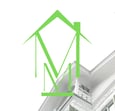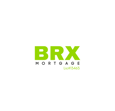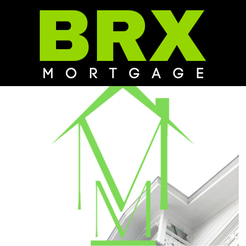
FAQs
Explore comprehensive answers to your most pressing questions about Canadian mortgage information and processes.
Canadian Mortgage FAQs
Explore essential questions about mortgages in Canada for informed decision-making and guidance.
General Mortgage Questions
1. What is a mortgage?
A mortgage is a loan that helps you purchase a home. The property serves as collateral for the loan.
2. How do mortgages work?
You borrow money from a lender, agree to repay it over time with interest, and make monthly payments until the loan is paid off.
3. What are the different types of mortgages?
Common types include fixed-rate, variable-rate (adjustable), open, closed, and hybrid mortgages.
4. What is the difference between a fixed and variable rate mortgage?
A fixed-rate mortgage has a constant interest rate, while a variable-rate mortgage can fluctuate based on market conditions.
5. How do I qualify for a mortgage?
Lenders assess your credit score, income, debt-to-income ratio, employment history, and down payment amount.
Mortgage Application Process
6. How do I apply for a mortgage?
You need to submit an application with financial details, provide documents (like income proof, credit history), and go through lender approval.
7. How long does it take to get a mortgage approved?
It typically takes anywhere from a few days to a few weeks, depending on your financial situation and the lender's process.
8. What documents do I need for a mortgage application?
You’ll need proof of income, tax returns, credit report, employment verification, and details about your assets and liabilities.
9. What factors affect my mortgage approval?
Your credit score, income, employment stability, debt levels, and the home’s value all impact approval.
10. Can I get pre-approved for a mortgage?
Yes! A pre-approval shows how much you can afford and strengthens your offer when buying a home.
Down Payment & Home Buying Costs
11. How much down payment do I need?
A minimum of 5% for homes under $500,000 in Canada, but 20% is required to avoid mortgage default insurance.
12. What is mortgage default insurance?
This insurance protects lenders if you default on your mortgage. It’s required for down payments of less than 20%.
13. Are there any first-time homebuyer incentives?
Yes, Canada offers incentives like the First-Time Home Buyer Incentive and RRSP Home Buyers’ Plan.
14. What are closing costs?
These include legal fees, land transfer tax, title insurance, and appraisal fees—typically 1.5% to 4% of the home’s price.
15. Can I use gifted money for my down payment?
Yes, but lenders usually require a gift letter confirming it's not a loan.
Mortgage Rates & Payments
16. What affects mortgage interest rates?
Rates depend on economic conditions, Bank of Canada rates, lender policies, and your credit profile.
17. How can I get the best mortgage rate?
Improve your credit score, shop around for lenders, and consider using a mortgage broker.
18. How are mortgage payments calculated?
Payments are based on your loan amount, interest rate, amortization period, and payment frequency.
19. What is the difference between monthly and bi-weekly payments?
Bi-weekly payments reduce your overall interest and help pay off the mortgage faster.
20. Can I change my mortgage payment schedule?
Yes, many lenders allow you to switch between monthly, bi-weekly, or accelerated payment plans.
Refinancing & Renewals
21. What is mortgage refinancing?
Refinancing replaces your existing mortgage with a new one, often to get a better rate or access home equity.
22. When should I consider refinancing?
Consider refinancing if rates drop, you need to consolidate debt, or you want to access home equity.
23. What is a mortgage renewal?
A renewal happens when your term ends, and you sign a new agreement for the remaining balance.
24. Can I switch lenders at renewal?
Yes, you can shop around for better rates and terms before renewing.
25. Are there penalties for refinancing early?
Yes, depending on your mortgage type, penalties may apply for breaking your term early.
Credit & Mortgage Eligibility
26. What credit score do I need for a mortgage?
Most lenders prefer a credit score of 680+, but options exist for lower scores.
27. Can I get a mortgage with bad credit?
Yes, but you may need a larger down payment or a private lender.
28. How can I improve my credit before applying for a mortgage?
Pay bills on time, reduce debt, and avoid new credit applications.
29. Can I get a mortgage if I’m self-employed?
Yes, but lenders require more documentation, such as business financials and tax returns.
30. What is a co-signer, and do I need one?
A co-signer helps applicants with low income or credit get approved. They are responsible if you default.
Mortgage Penalties & Early Repayment
31. Can I pay off my mortgage early?
Yes, but some lenders charge penalties for early payments beyond your prepayment privileges.
32. What are prepayment privileges?
These allow you to pay extra toward your mortgage principal without penalties, typically 10-20% of the original loan per year.
33. How are mortgage penalties calculated?
For fixed-rate mortgages, lenders charge the greater of three months’ interest or the Interest Rate Differential (IRD).
34. Can I avoid mortgage penalties?
Yes, by choosing an open mortgage, waiting until your term ends, or using prepayment privileges wisely.
35. What happens if I miss a mortgage payment?
You may be charged a late fee, and repeated missed payments can impact your credit score.
Investment Properties & Home Equity
36. Can I get a mortgage for a rental property?
Yes, but lenders require a larger down payment (usually 20%) and consider rental income.
37. What is a home equity line of credit (HELOC)?
A HELOC allows you to borrow against your home’s equity at a variable interest rate.
38. How much equity do I need for a HELOC?
You typically need at least 20% equity in your home.
39. Can I use home equity to consolidate debt?
Yes, refinancing or a HELOC can help pay off high-interest debts.
40. Is buying a second home different from buying my first?
Yes, second-home purchases often require higher down payments and stricter lending criteria.
Special Circumstances
41. Can I get a mortgage after bankruptcy?
Yes, but you may need to wait 2+ years and rebuild your credit.
42. What happens to my mortgage if I get divorced?
You may need to refinance, buy out your spouse’s share, or sell the home.
43. Can newcomers to Canada get a mortgage?
Yes! Some lenders offer special programs for recent immigrants.
44. What happens if my home’s value drops?
If you owe more than the home is worth, selling or refinancing may be challenging.
45. What should I do if I lose my job while paying a mortgage?
Contact your lender immediately to discuss payment deferral or restructuring options.
Final Mortgage Considerations
46. Should I use a mortgage broker or go directly to a bank?
Brokers offer more lender options and competitive rates, while banks provide direct lending.
47. What is a mortgage stress test?
It ensures you can afford payments even if interest rates rise.
48. How long should my mortgage term be?
Shorter terms offer flexibility, while longer terms provide rate stability.
49. Can I get a mortgage if I live in a rural area?
Yes, but some lenders may have restrictions or require a larger down payment.
50. What should I do before buying a home?
Get pre-approved, budget for costs, research the market, and consult a mortgage professional.
Growth
Empowering clients through personalized mortgage solutions.
Service:
info@matthewmortgage.ca
© 2024. All rights reserved - Matthew Maingot Mortgages


Matthew Maingot
Mortgage Agent Level 1
FSRA #M22002706


FSRA #13463


